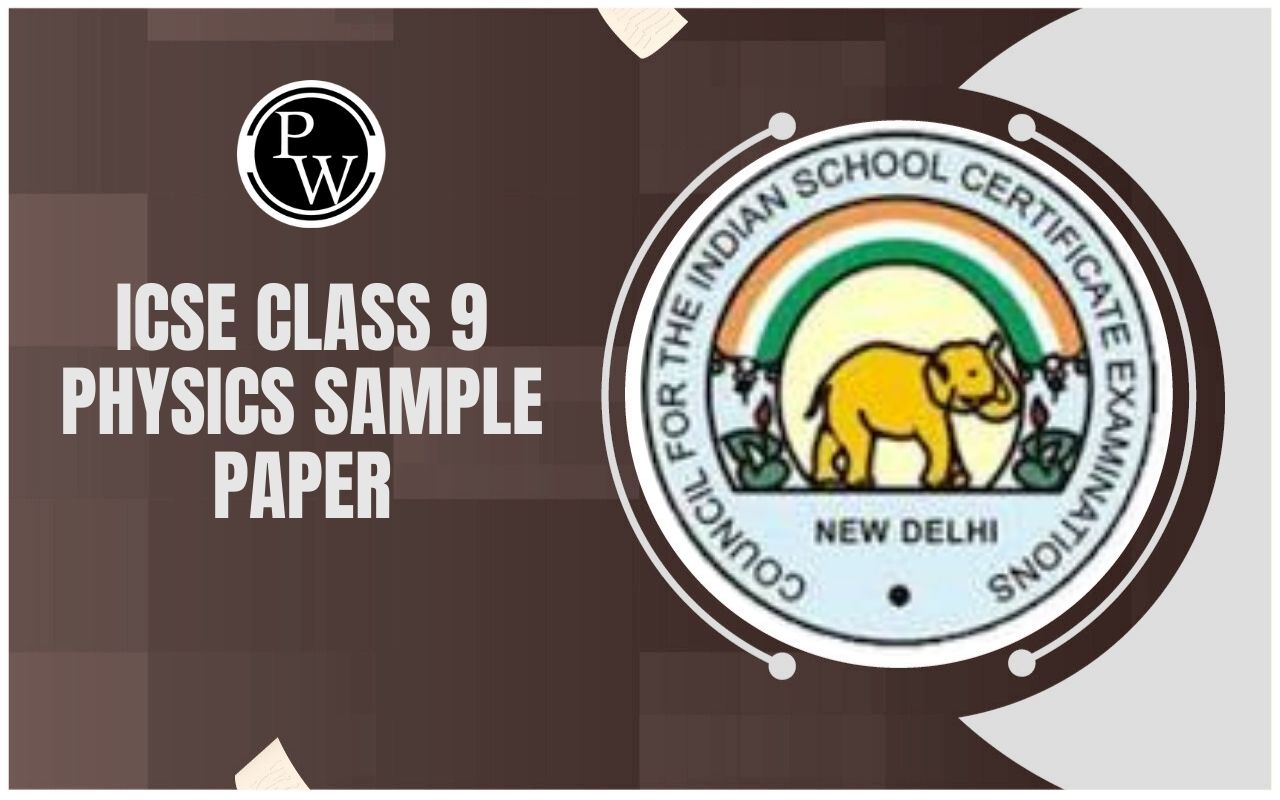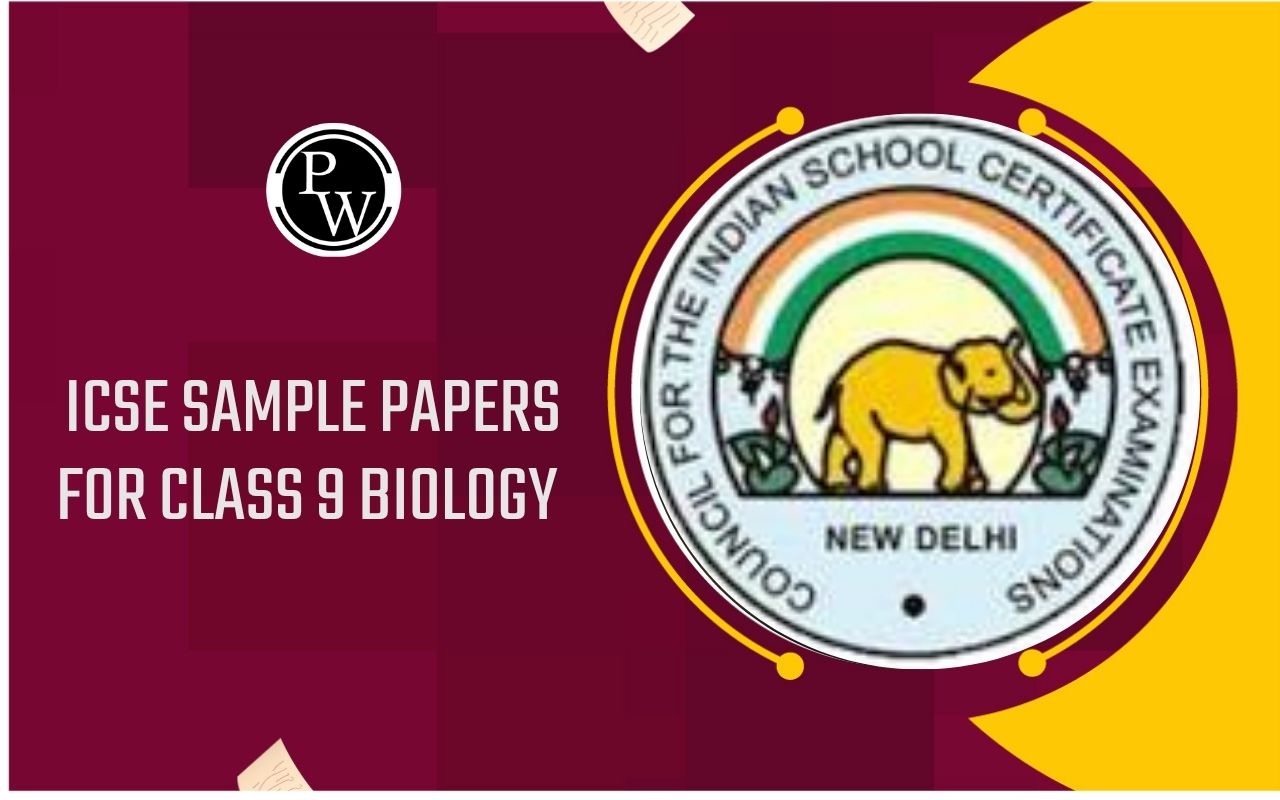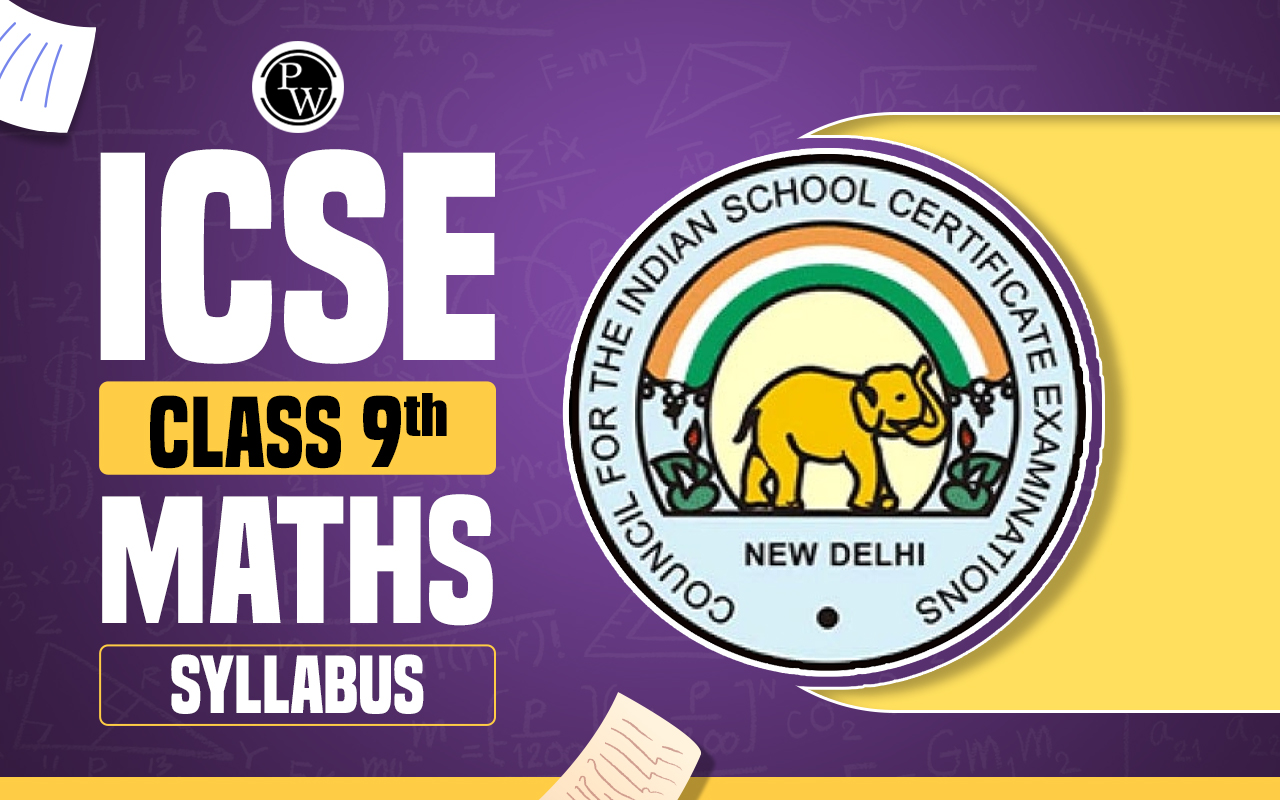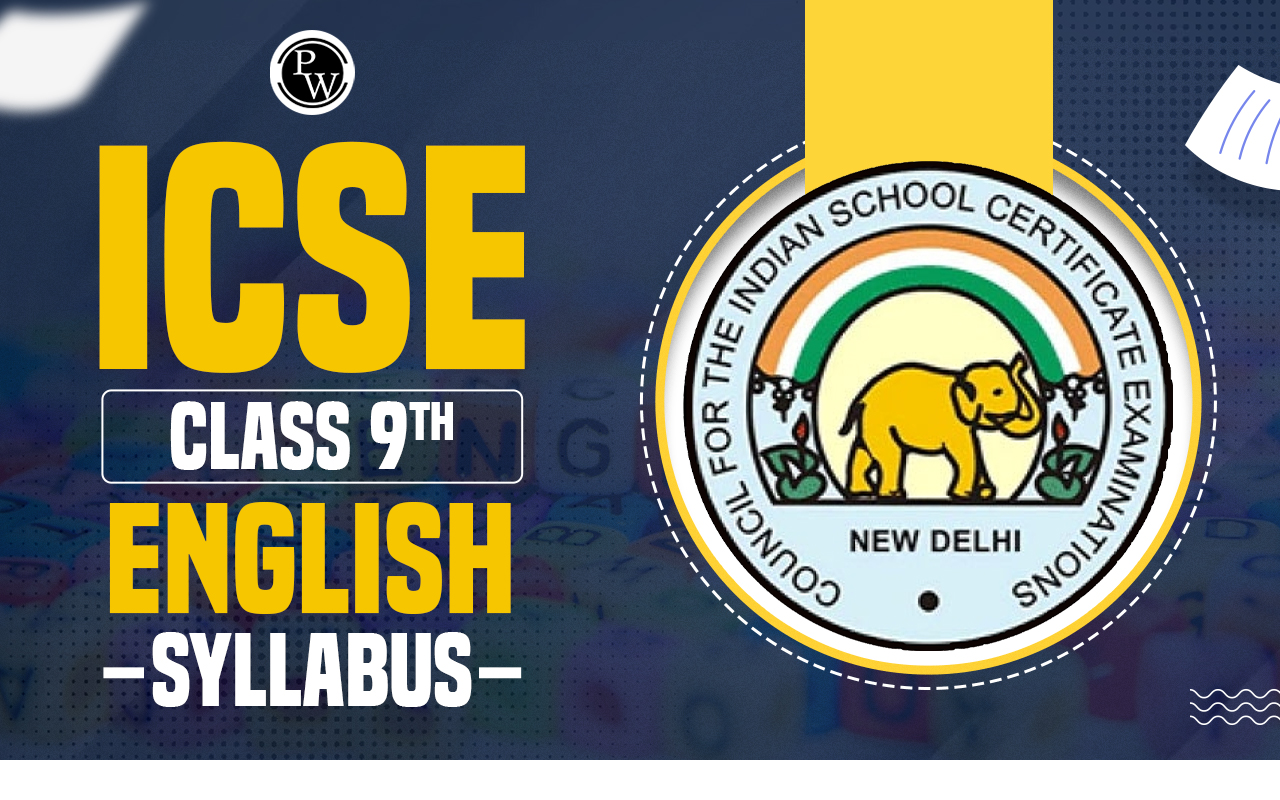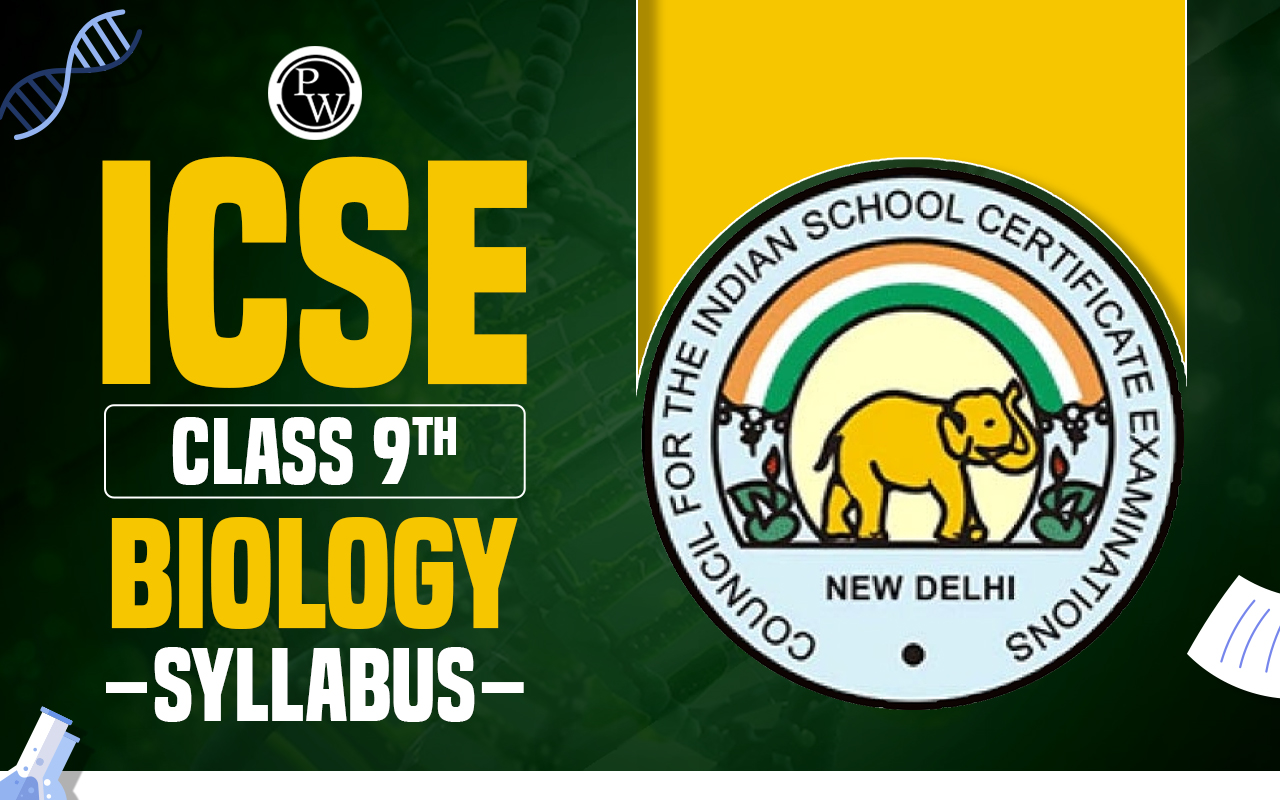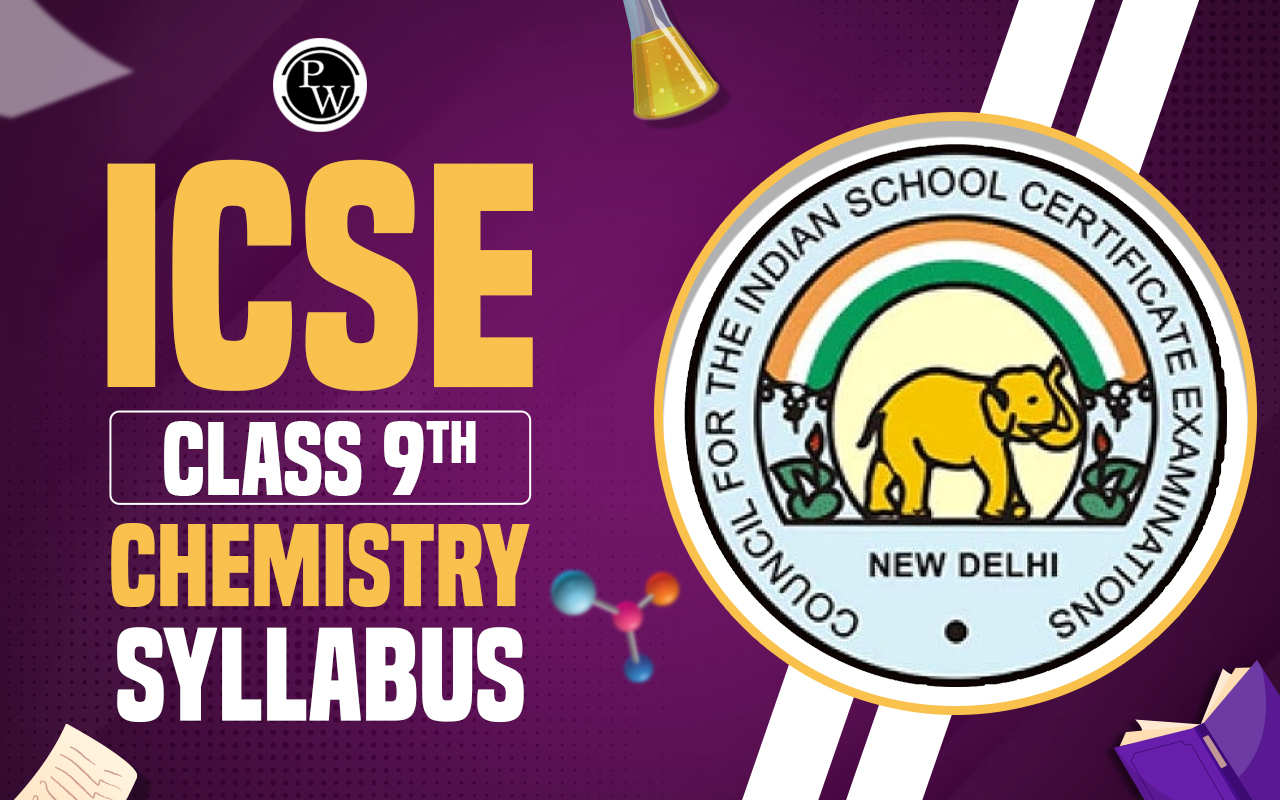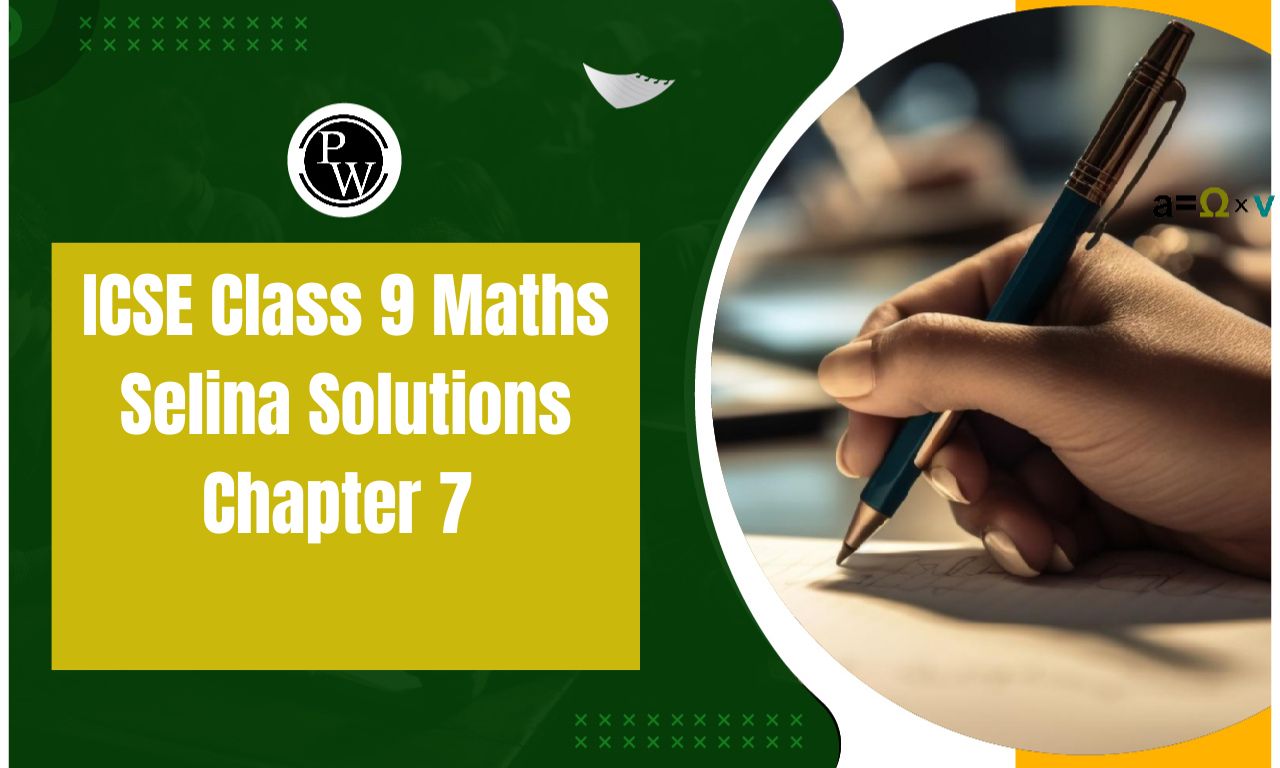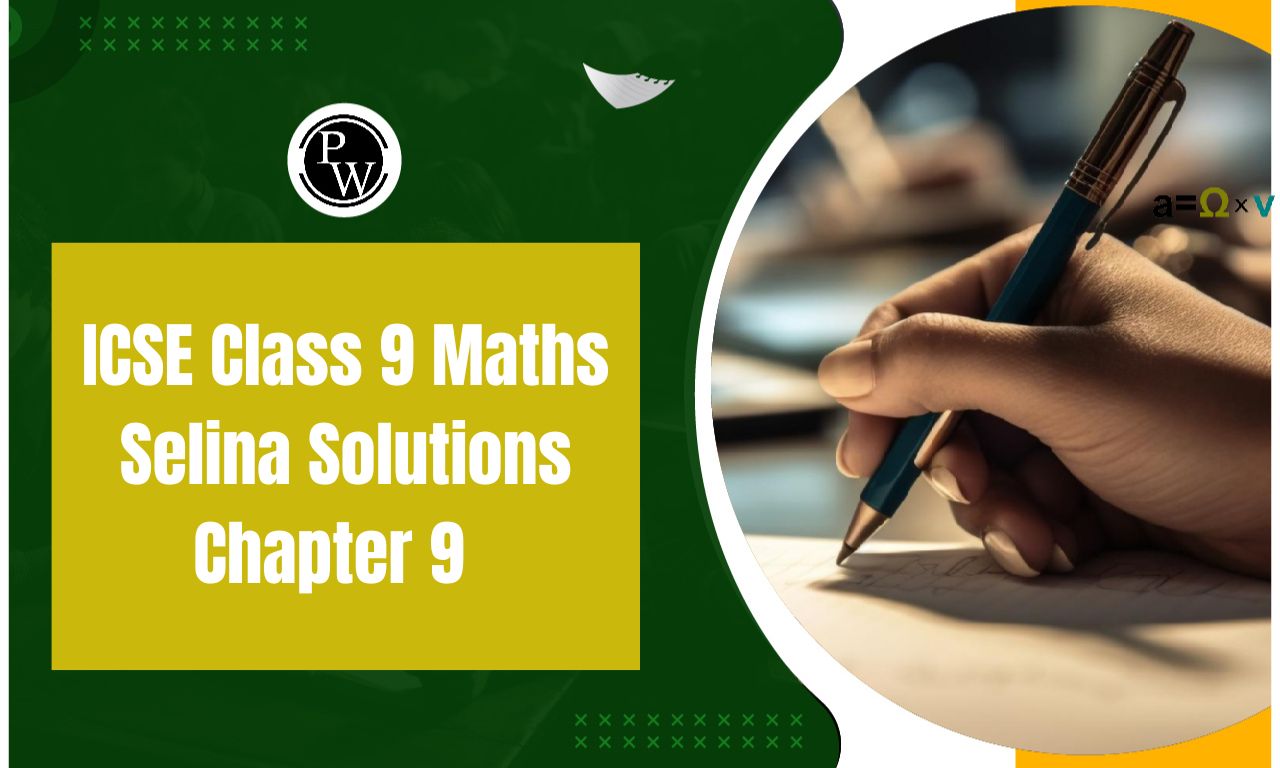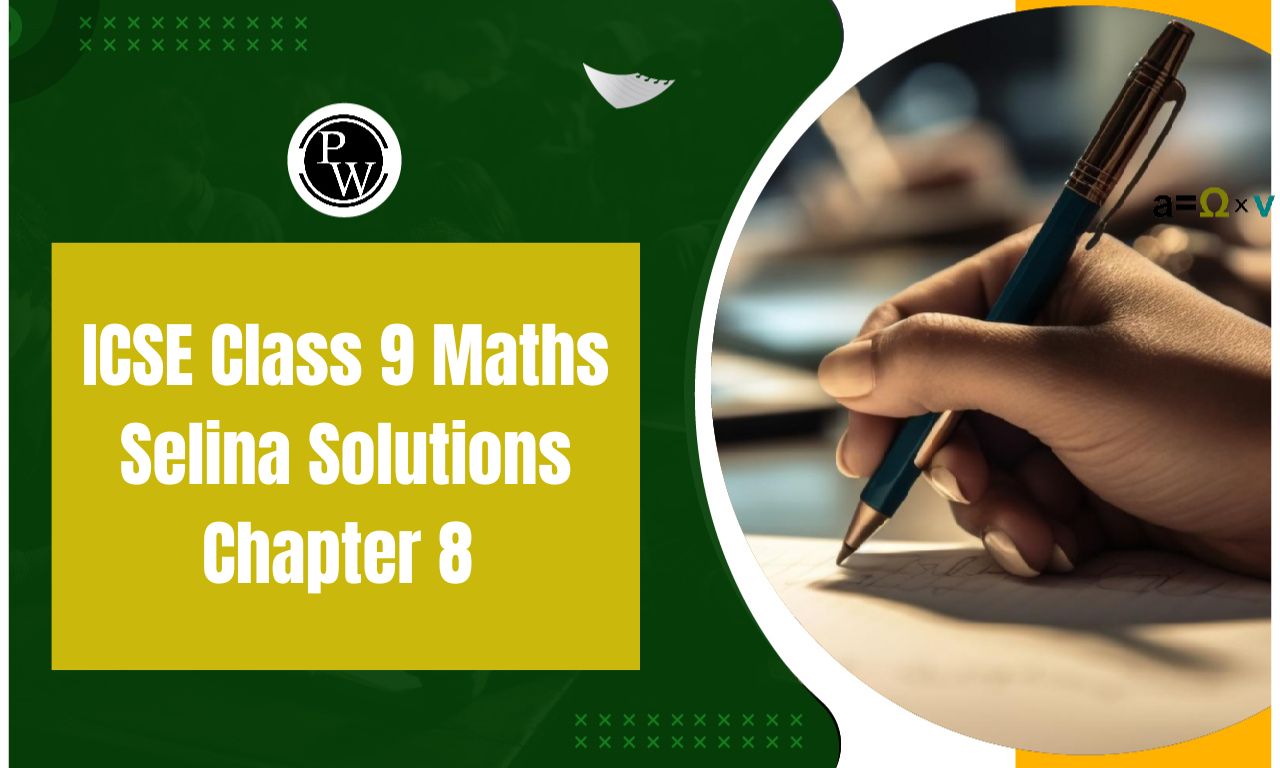
ICSE Class 9 History and Civics Syllabus: At the onset of the academic year, students must familiarize themselves with the ICSE History and Civics Class 9 syllabus to enhance their exam readiness.
The ICSE History and Civics Class 9 Syllabus provides a comprehensive coursework outline, ensuring students have a clear study roadmap. Students can refer to the Physics Wallah website for detailed online course outlines across subjects. Developed by experts at ICSE, the Class 9 History and Civics syllabus is the product of rigorous research and analysis. Designed to equip students with a robust foundation, this syllabus primes them to explore these subjects further as they progress to their Class 10 Board examinations. Given the comprehensive coverage of fundamental concepts within the syllabus, students are afforded a streamlined learning path, fulfilling the need for exhaustive study preparations.ICSE Class 9 History and Civics Syllabus Overview
Students must familiarize themselves with crucial aspects of the ICSE History and Civics Class 9 Syllabus, such as the exam paper duration, grading criteria, frequency of assessments throughout the academic year, marking scheme, and evaluation methodology. A nuanced understanding of the Internal Assessment component is paramount for students. They must discern the study techniques and preparation strategies to excel in the 20-mark Internal Assessment. Per the syllabus guidelines, the subject teacher and an external examiner will oversee this evaluation. While half of the marks are attributed to the subject teacher's assessment, the remaining half is determined by the external examiner's evaluation. Hence, to achieve commendable overall scores, students must accord importance to internal assessments and diligently undertake the recommended tasks. Before devising a study blueprint aligned with the ICSE History and Civics Class 9 Syllabus, students should immerse themselves in its contents multiple times. Effective time management and focused study sessions are hallmarks of a well-prepared student. By assimilating all pertinent details, students can orchestrate their study schedules judiciously. The ICSE History and Civics Class 9 Syllabus is comprehensive, equipping students with essential materials to grasp the subject matter proficiently. With its meticulously structured syllabus, grading system, internal assessments, and associated tasks, ICSE students are provided a holistic framework to navigate and comprehend the curriculum effectively.ICSE Class 9 History and Civics Syllabus Objectives
- Fostering Responsible Citizenship: Equip students with insights into the functioning of the Indian government, facilitating their evolution as conscientious and informed citizens within a secular democratic framework.
- Deepening Historical Insight: Enhance students' comprehension of pivotal facets of India's historical evolution, ensuring a nuanced understanding of contemporary India's landscape.
- Appreciation of Diverse Contributions: Cultivate in students an appreciation for the myriad influences and streams that have shaped India's growth, civilization, and rich cultural tapestry.
- Promoting Global Perspective: Instill in students a global historical outlook, highlighting the invaluable contributions various cultures have made to the collective heritage of humanity.
ICSE Class 9 History & Civics Examination Guidelines
- The examination will be a paper lasting two hours, totaling 80 marks, complemented by an Internal Assessment of 20 marks.
- The paper is structured into two distinct parts: Part I and Part II.
- In Part I (comprising 30 marks), candidates will encounter short-answer questions spanning the entire syllabus. Candidates must attempt all questions in this section.
- Part II (allocated 50 marks) is further divided into Sections A and B. From Section A, candidates must answer two of the questions provided. Similarly, from Section B, candidates must address three of the five questions. These sections align with the delineations specified in the syllabus.
ICSE Class 9 Chemistry Syllabus
ICSE Class 9 History and Civics Syllabus Chapters
| ICSE Class 9 History and Civics Syllabus Chapters | |||
| S.No. | Unit | Topics | Sub-Topics |
| Section A: Civics | |||
| 1 | Our Constitution | Definition of Constitution | Date of adoption, date of enforcement, significance, Single Citizenship, Universal Adult Franchise, Fundamental Rights, Fundamental Duties, Directive Principles of State Policy (meaning), Welfare State |
| 2 | Elections | Meaning | Composition of Election Commission (brief), Direct vs. Indirect election, General, Mid-term, By-election |
| 3 | Local Self Government | (i) Rural: Panchayati Raj | Three-tier system - Gram Panchayat, Panchayat Samiti, Zila Parishad - meaning, functions |
| (ii) Urban: Municipal Bodies | Municipal Committees, Municipal Corporations - meaning, functions | ||
| Section B: History | |||
| 1 | The Harappan Civilisation | Sources | Great Bath, Citadel, seals, bearded man, dancing girl, dockyard, script, Origin, extent, urban planning, trade, art & craft, decline |
| 2 | The Vedic Period | Sources | Vedas, Epics, Iron Artifacts, Pottery, Comparative study of Early vs. Later Vedic society and economy |
| 3 | Jainism and Buddhism | Sources | Angas, Tripitikas, Jatakas, Causes for rise in 6th century B.C., Doctrines |
| 4 | The Mauryan Empire | Sources | Arthashastra, Indika, Ashokan Edicts, Sanchi Stupa, Political history (Chandragupta Maurya, Ashoka), Ashoka’s Dhamma |
| 5 | The Sangam Age | Sources | Tirukkural, Megaliths, Society and economy |
| 6 | The Age of the Guptas | Sources | Fa-hien's Account, Allahabad Pillar Inscription, Political history (Samudragupta, Chandragupta Vikramaditya), Contributions to Education, Science, Culture |
| 7 | Medieval India | (a) The Cholas | Inscriptions, Brihadishwara Temple, Political history (Rajaraja I, Rajendra I) |
| (b) The Delhi Sultanate | Inscriptions, Qutab Minar, Political history (Qutbuddin Aibak, Alauddin Khilji, Muhammad Bin Tughlaq) | ||
| (c) The Mughal Empire | Ain-i-Akbari, Taj Mahal, Jama Masjid, Red Fort, Political history (Babur, Akbar, Aurangzeb) | ||
| (d) Composite Culture | Bijak, Guru Granth Sahib, Ajmer Sharief, St. Francis Assisi Church, Bhakti Movements, Sufism, Influence of Christianity | ||
| 8 | The Modern Age in Europe | (a) Renaissance | Definition, causes, impact on art, literature, science |
| (b) Reformation | Causes, Martin Luther’s contribution, Counter Reformation | ||
| (c) Industrial Revolution | Definition, Comparative study of Socialism and Capitalism | ||
Detailed ICSE Class 9 History and Civics Syllabus
The ICSE Class 9 History and Civics curriculum is meticulously designed to offer students a comprehensive understanding of historical events and the foundational principles of governance. This blend ensures that students not only grasp the rich tapestry of India's past but also comprehend the democratic framework of the nation.Section A: Civics
1. Our Constitution:
Delving into the heart of India's democratic ethos, students explore the inception, significance, and salient features of the Indian Constitution. Concepts such as Single Citizenship, Universal Adult Franchise, and Fundamental Rights and Duties are pillars of this exploration. 2. Elections: A democratic nation's essence lies in its electoral process. This section elucidates the nuances of elections, encompassing the roles of the Election Commission, distinctions between Direct and Indirect elections, and the dynamics of General, Mid-term, and By-elections. 3. Local Self-Government: Understanding governance at the grassroots level is pivotal. Students navigate through the intricacies of the Panchayati Raj system, both in rural and urban contexts, shedding light on their roles, functions, and significance in decentralizing power.Section B: History
1. The Harappan Civilisation:
Embarking on a journey back in time, students unearth the mysteries of the Harappan Civilisation. Through archaeological findings and historical accounts, they delve into its urban planning, trade networks, and eventual decline. 2. The Vedic Period: This section juxtaposes the Early and Later Vedic societies by tracing India's spiritual and societal roots. Students glean insights from ancient texts like the Vedas and Epics, understanding shifts in societal structures, economy, and cultural practices. 3. Jainism and Buddhism: The 6th century B.C. witnessed the rise of transformative spiritual movements. Students dissect the tenets of Jainism and Buddhism, evaluating their doctrines and understanding the socio-cultural milieu that spurred their emergence. 4. The Mauryan Empire: The political and administrative prowess of the Mauryan Empire stands as a testament to ancient India's grandeur. Through primary sources like the Arthashastra and Ashokan Edicts, students navigate the empire's zenith under rulers like Chandragupta Maurya and Ashoka. 5. Medieval India: From the maritime dominance of the Cholas to the architectural marvels of the Delhi Sultanate and the expansive Mughal Empire, students traverse the diverse landscapes of medieval India. They delve into political dynamics, administrative innovations, and the synthesis of cultures during this era. 6. The Modern Age in Europe: Broadening horizons, students journey to Europe, exploring transformative epochs like the Renaissance, Reformation, and Industrial Revolution. They analyze socio-cultural shifts, technological advancements, and ideological transformations that shaped modern Europe and its global impact. The ICSE Class 9 History and Civics Syllabus offers a panoramic view of India's historical evolution and the principles underpinning its democratic fabric. Through a blend of theoretical knowledge, primary source analysis, and critical thinking, students are equipped to appreciate the complexities of the past and present.ICSE Class 9 History and Civics Syllabus Internal Assessment
Candidates are required to undertake one project or assignment aligned with the syllabus. Recommended Assignments:- Delve into how the Indian constitution safeguards the rights of children, women, minorities, and marginalized communities, providing insights through a detailed case study.
- Explore the symbiotic relationship between Fundamental Duties and Fundamental Rights by crafting an illustrative PowerPoint Presentation.
- Identify and discuss prevalent civic issues in your locality, proposing feasible solutions to mitigate them.
- Embark on a journey to a museum or local historical landmark and elucidate its historical and cultural significance.
- Examine and highlight the unique art and architectural elements of select monuments such as the Buddhist Caves in Ajanta, Iron Pillar in Mehrauli, Gol Gumbaz in Bijapur, Mattancherry Synagogue in Cochin, Kamakhya Temple in Guwahati, St. Thomas Basilica in Chennai, or the Tower of Silence in Mumbai.
- Craft a visual presentation showcasing notable inventions and advancements from the Industrial Revolution era.
- Conduct a comparative analysis between the Harappan and Mesopotamian civilizations, elucidating their similarities, differences, and contributions to ancient civilizations.
ICSE Class 9 History and Civics Syllabus 2023-2024 PDF Link
Accessing the official ICSE Class 9 History and Civics Syllabus 2023-2024 PDF link is essential for those embarking on this academic journey. This digital resource is a comprehensive guide outlining the academic year's topics, sub-topics, and evaluation criteria. It provides students with a structured pathway to navigate the curriculum, ensuring a systematic approach to learning. Furthermore, the integration of Civics within this syllabus emphasizes the importance of understanding governance, rights, and responsibilities in a democratic setup. The syllabus aims to cultivate informed citizens who appreciate the intricacies of the Indian Constitution, electoral processes, and the significance of local self-governance. To complement classroom learning and aid in comprehensive exam preparation, students are encouraged to utilize resources like PW’s solutions. These expertly crafted materials clarify intricate details, facilitating a deeper understanding of historical events and civic concepts. Moreover, by emphasizing the connections between India's history and global events, students gain a broader perspective, enriching their learning experience.Preparation Strategies for ICSE Class 9 History and Civics Syllabus
Preparing for the ICSE Class 9 History and Civics Syllabus requires comprehensive understanding, effective study techniques, and consistent revision. Here are some preparation strategies tailored to help students excel:1) Understand the Syllabus:
Begin by familiarizing yourself thoroughly with the ICSE Class 9 History and Civics Syllabus. This will give you a clear roadmap of the topics to cover and the weightage assigned to each section.2) Organized Study Plan:
Develop a structured study timetable. Allocate specific time slots for each topic or chapter, ensuring balanced coverage across History and Civics. This will help manage time efficiently and ensure comprehensive preparation.3) Active Learning:
Instead of passive reading, engage actively with the content. Create concise notes, highlight key points, and annotate your textbooks. Discussing topics with peers or family members can also deepen understanding through varied perspectives.ICSE Class 9 Geography Syllabus
4) Use Supplementary Resources:
While textbooks are fundamental, utilize supplementary resources such as reference books, online platforms, or educational apps. Websites like PW offer solutions, practice papers, and expert guidance that can enhance your preparation.5) Practice Previous Year Papers:
Familiarize yourself with the exam pattern and type of question by solving previous year's papers. This will boost confidence and improve time management skills during the actual exam.6) Interactive Learning:
Engage in group discussions, debates, or quizzes with classmates. This collaborative approach can provide diverse insights, clarify doubts, and reinforce learning.7) Revise Regularly:
Consistent revision is crucial. Allocate time for regular revisions, focusing on areas of difficulty or topics that require more attention. Use revision techniques like mind maps, flowcharts, or flashcards to condense information and aid memory retention.8) Seek Guidance:
Contact teachers, tutors, or subject matter experts if you encounter challenges or have doubts. Their expertise can provide clarity, offer strategies, and guide you in areas of difficulty.9) Maintain Balance:
While focusing on academics, ensure a balanced approach. Incorporate breaks, engage in physical activity, maintain a healthy diet, and get adequate sleep. A refreshed mind enhances productivity and retention. Preparing for the ICSE Class 9 History and Civics Syllabus requires dedication, structured planning, and consistent effort. By adopting these strategies and maintaining a positive attitude, students can navigate the syllabus effectively, fostering a deeper understanding and achieving academic excellence.ICSE Class 9 <span style=
What is the structure of the ICSE Class 9 History and Civics Syllabus?
The syllabus is divided into two main sections: Civics and History. The Civics section focuses on the Constitution, Elections, and Local Self-Government. The History section delves into the Harappan Civilisation, the Vedic Period, Medieval India, and the Modern Age in Europe.
How many marks are allocated to each section?
The Civics section holds a weightage of 80 marks, while the History section comprises various topics, each with its designated marks. Students should refer to the syllabus for the specific marks allocated to each historical topic.
Are there practical components or projects involved in the Civics section?
No, the ICSE Class 9 History and Civics Syllabus primarily focuses on theoretical knowledge. However, understanding and interpretation of historical and civic events may require students to engage in research or group discussions as per the teaching methodology.
What primary sources are recommended for studying specific historical periods?
For various historical periods like the Harappan Civilisation, the Vedic Period, the Mauryan Empire, and others, students are encouraged to consult specific primary sources mentioned in the syllabus, such as archaeological findings, ancient texts, inscriptions, and edicts.
How should students approach the topics like Jainism, Buddhism, and other religions covered in the syllabus?
For topics related to religious movements like Jainism and Buddhism, students should focus on understanding the historical context, foundational principles, doctrines, and socio-cultural impacts. Consulting primary texts and scholarly interpretations will provide a comprehensive understanding.
🔥 Trending Blogs
Talk to a counsellorHave doubts? Our support team will be happy to assist you!

Check out these Related Articles
Free Learning Resources
PW Books
Notes (Class 10-12)
PW Study Materials
Notes (Class 6-9)
Ncert Solutions
Govt Exams
Class 6th to 12th Online Courses
Govt Job Exams Courses
UPSC Coaching
Defence Exam Coaching
Gate Exam Coaching
Other Exams
Know about Physics Wallah
Physics Wallah is an Indian edtech platform that provides accessible & comprehensive learning experiences to students from Class 6th to postgraduate level. We also provide extensive NCERT solutions, sample paper, NEET, JEE Mains, BITSAT previous year papers & more such resources to students. Physics Wallah also caters to over 3.5 million registered students and over 78 lakh+ Youtube subscribers with 4.8 rating on its app.
We Stand Out because
We provide students with intensive courses with India’s qualified & experienced faculties & mentors. PW strives to make the learning experience comprehensive and accessible for students of all sections of society. We believe in empowering every single student who couldn't dream of a good career in engineering and medical field earlier.
Our Key Focus Areas
Physics Wallah's main focus is to make the learning experience as economical as possible for all students. With our affordable courses like Lakshya, Udaan and Arjuna and many others, we have been able to provide a platform for lakhs of aspirants. From providing Chemistry, Maths, Physics formula to giving e-books of eminent authors like RD Sharma, RS Aggarwal and Lakhmir Singh, PW focuses on every single student's need for preparation.
What Makes Us Different
Physics Wallah strives to develop a comprehensive pedagogical structure for students, where they get a state-of-the-art learning experience with study material and resources. Apart from catering students preparing for JEE Mains and NEET, PW also provides study material for each state board like Uttar Pradesh, Bihar, and others
Copyright © 2026 Physicswallah Limited All rights reserved.
